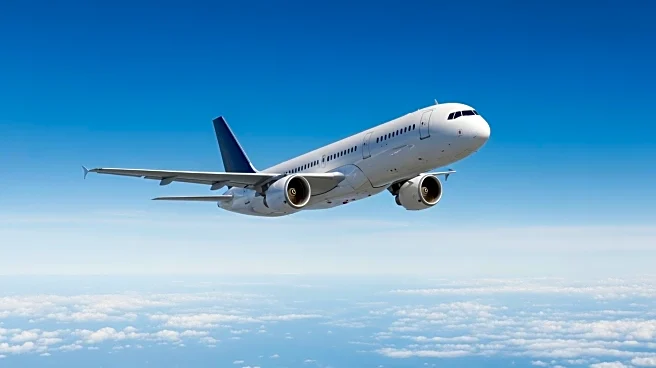What's Happening?
Air travel capacity between Western Europe and the Middle East is set to increase significantly this winter, driven by the restoration of flights to Israel and network expansions by Gulf and European carriers.
According to OAG Schedules Analyser, the total two-way seat capacity will reach 41 million during the winter 2025-26 season, marking a 14.7% increase from the previous year. This growth is largely attributed to the resumption of services to Israel following suspensions due to the Gaza conflict. Notable increases include Italy-Israel capacity up by 76%, France-Israel by 66.6%, and Germany-Israel by 73.4%. Major airlines like Emirates, Etihad Airways, and Turkish Airlines are contributing to this growth, each adding substantial seat capacity compared to last winter.
Why It's Important?
The expansion of air travel capacity between Europe and the Middle East is significant for several reasons. It reflects a renewed confidence in regional stability and the potential for increased economic and cultural exchanges. The growth in capacity also indicates strong demand for both direct and connecting flights, which can boost tourism and business travel. Airlines stand to benefit from increased passenger numbers, while the regions involved may experience economic growth through enhanced connectivity. This development is particularly important for Israel, as it seeks to rebuild its tourism and business sectors post-conflict.
What's Next?
As airlines continue to restore and expand their networks, further increases in capacity are expected. This could lead to more competitive pricing and improved services for travelers. Stakeholders, including tourism boards and businesses in both regions, will likely capitalize on the increased connectivity to promote economic and cultural initiatives. Monitoring the geopolitical situation will be crucial to maintaining and potentially expanding these air travel routes.
Beyond the Headlines
The growth in air travel capacity highlights the broader trend of recovery in the aviation industry post-pandemic and conflict. It underscores the importance of strategic planning and adaptability for airlines in navigating geopolitical challenges and market demands.










